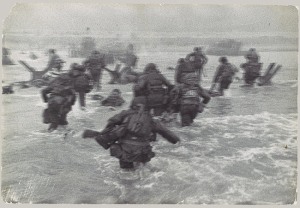Well, the early critical reviews are out and the knives are in: the latest movie remake of The Lone Ranger looks to be tanking like the Titanic,(the original ship, not James Cameron’s movie fantasy) although the some of the reviews posted at Rotten Tomatoes are favorable, most of them are entertainingly vicious. Jerry Bruckheimer again goes over the top from the high-dive with a half-gainer and a jackknife on the way down, all with the noisy special effects, Johnny Depp was promised that he could wear bizarre hair and a lot of makeup and it appears as if the ostensible lead character is just there…
There have been so many iterations of The Lone Ranger, on radio, television and in the movies, and each one added its conventions, characterization and images that now it has become a creaking tottering edifice built of clichés. No more growth is possible, just a recitation of the same old verities. I believe that we can do better by the old Wild West, and so I propose a very, very radical solution; to reboot the Lone Ranger by amputating it from the post Civil War never-never-land of mid-20th century imagining and transplanting it squarely back in pre-Civil War Texas, with forays perhaps into Missouri, Arkansas and Louisiana, and to New Mexico – perhaps even as far as California. John Reid would be the sole survivor of a ranger unit ambushed and wiped out by – oh, whoever would be the villainous gang of the time; a scalp-hunting gang, villainous Comancheros, cattle and horse thieves from the Nueces Strip. Really, any sufficiently well-organized gang of baddies from the period would serve. He could even be a survivor of the Mier Expedition, escaped from Mexican custody and found near-death in the wilderness by Tonto … who could be a Lipan Apache or Tonkawa scout.
And thereafter, the two would roam the southwest as it was at that particular time, with attention to actual historical figures and facts. They could do all the fighting of evil-doers and injustice that the plot would require; a pair of fearless and adventurous friends. (Ix-nay on any suggestion of gayness, mostly because I’m damned tired of that particular character development.) Keep the horse named Silver, though. But lose the silver bullets, the white hat and the mask. Sorry – but the first is impractical, given the weapons of the time, second given the custom of the time … and in the days before wide circulation of photographs, you could be a total stranger once you were five miles away from where you lived and worked. One didn’t need a mask – in fact, in the real Wild West that would have made the lone Ranger even more noticeable. “Hey, who was that masked man? Did you ever see the like? Oh, I heard tell of him …” Whereas, sans mask: “Hey, who was that guy? Oh, just another saddle tramp, passing through; don’t pay him no mind…”Keep the sense of honor, though – the chivalry, the sharp-shooting and the unwillingness to kill, unless there was no other way. I know this seems radical – and loosing the mask might be seen as heretical – but the situation calls for radical steps. Look, this latest version had Tonto with a crow squatting on his head, so I believe we have reached the point where something must be done to resuscitate our popular cultural heroes.
(Crossposted at Chicagoboyz.net and at www.ncobrief.com)



Recent Comments